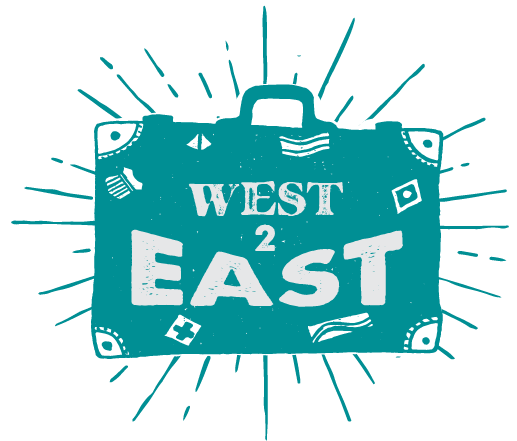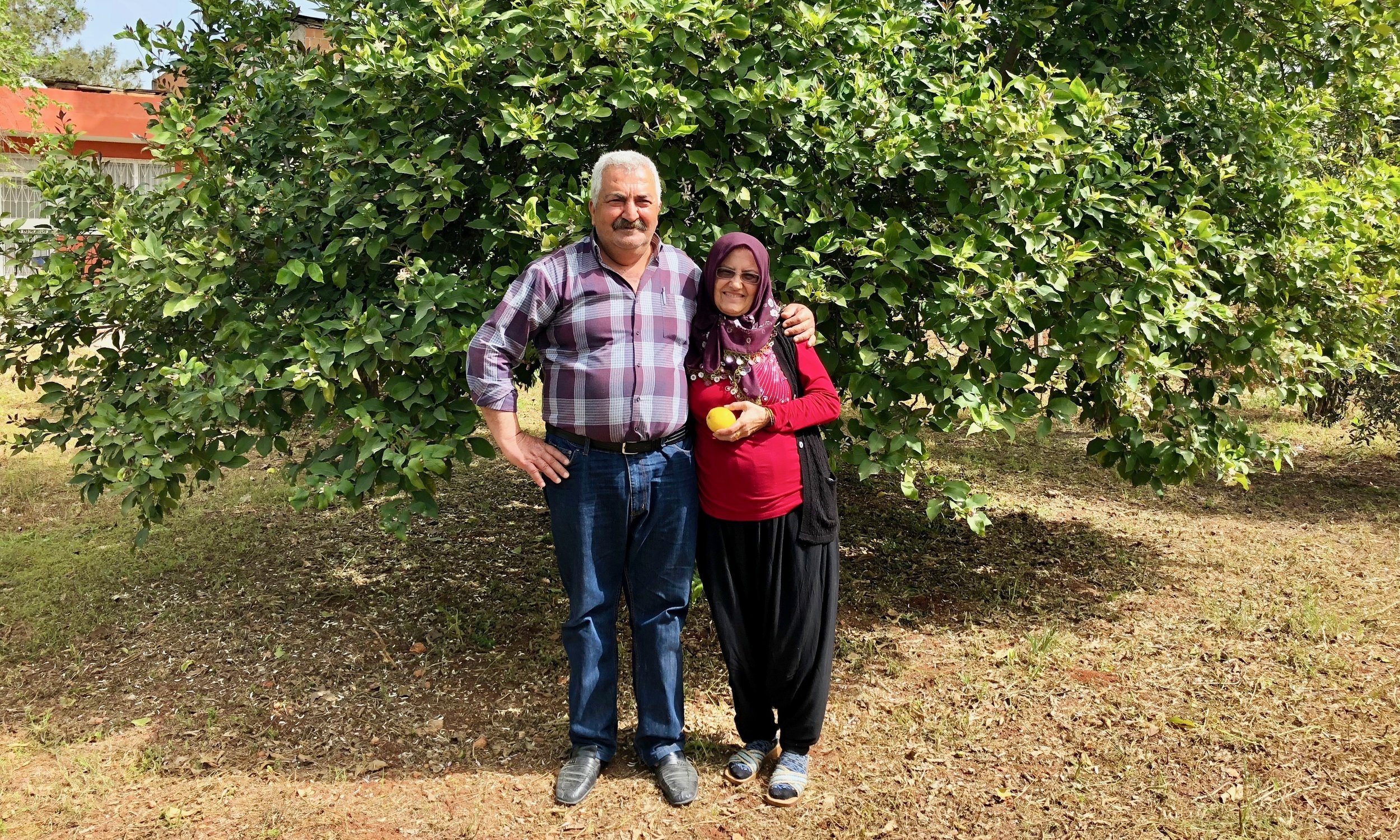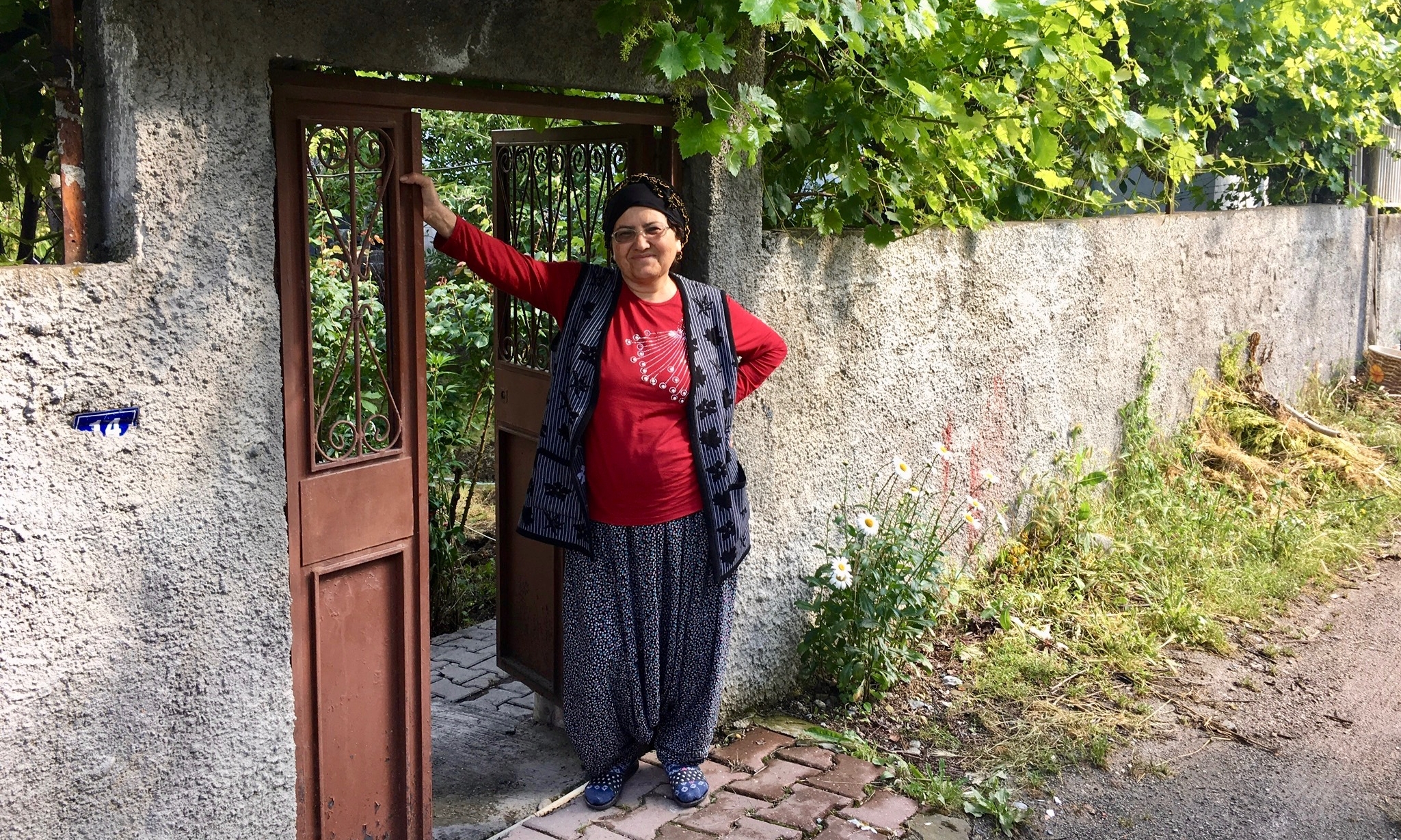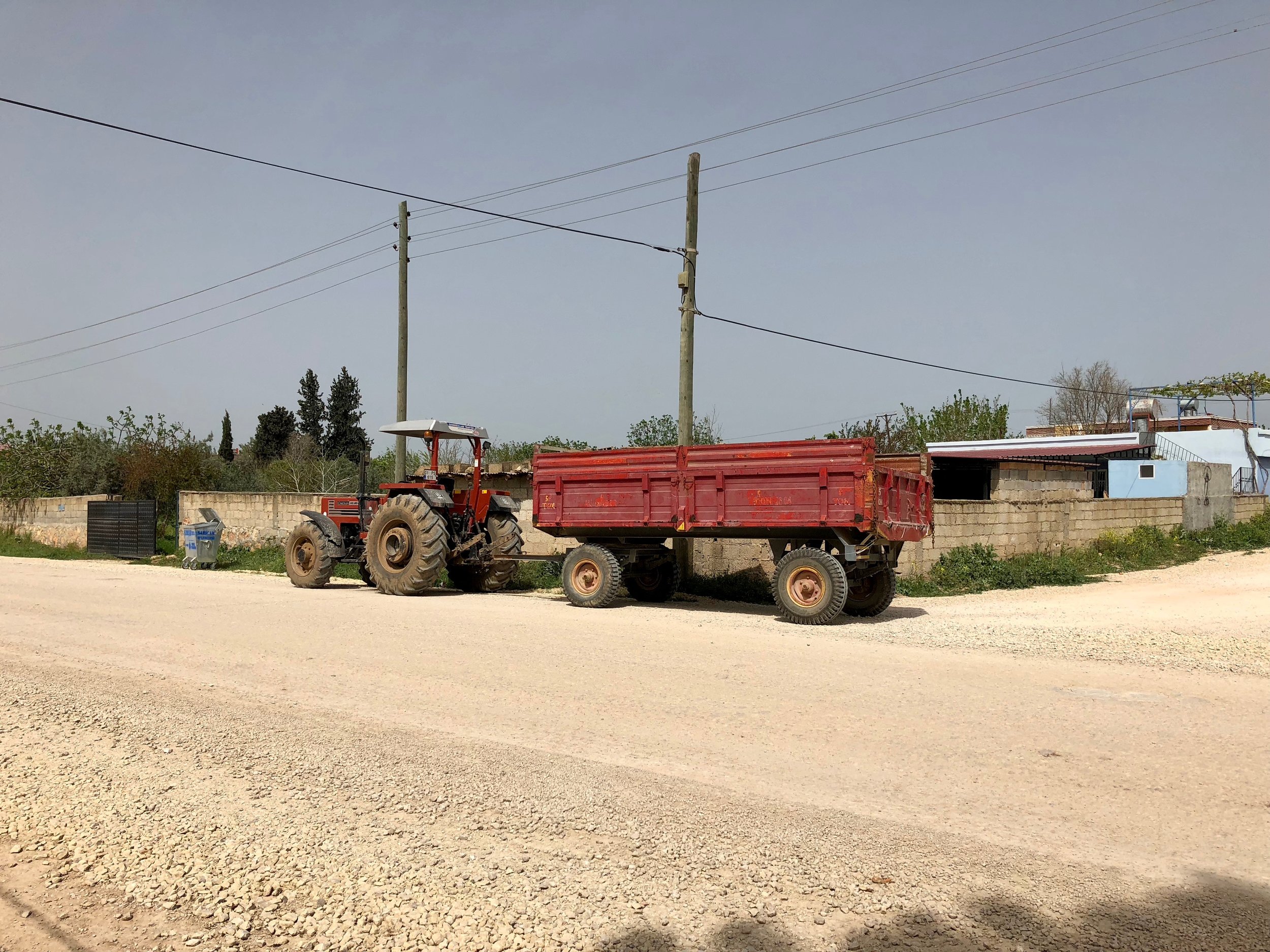Meet Huru: The Neighbor
Meet our neighbor, who is showing us the "fruit" of her labor from her orchard. (Get it? "Fruit" of her labor?)
We have the best neighbors. They are a retired couple and live across the hall. Komşuluk, or neighborliness, is a word in Turkish used to describe and discuss the friendliness and availability of ones neighbors. In America people may be friendly with their neighbors, exchanging a hello in passing, but typically we keep to ourselves. Not so in Turkey. Here it is normal to share a cup of tea or coffee with your neighbor every day. Yes, you read that correctly. Every day. Sometimes people greet one another with a “Hello, how are you?” in passing, but most of the time they stay and chat awhile.
Part of neighborliness is taking the time to chat over some hot tea.
For those who enjoy taking a closer look at cultures, the example above could be described as a contrast between collectivism and individualism. A collectivist culture, like what is found in Turkey, is more interdependent and group-oriented while an individualist culture, like what is found in America, is more independent and self-oriented. That’s why when I come home at the end of the day my first American inclination is to retreat to my home while my Turkish neighbors want to get together and discuss the day’s events over a cup of tea. This collective, group-oriented mindset found in Turkey is why the Turkish people are so good at “neighborliness.” (You can read more about cultural analysis here.)
Our neighbors took us to visit their summer home in the mountains and introduced us to all of their friends.
Our best teachers in neighborliness since coming to Turkey have been these across-the-hall neighbors. They regularly bring us plates of food or invite us over for tea and coffee. They have introduced us to all of their family. We even spent the day with them visiting their village home and stayed overnight in their mountain home.
Our neighbor's orchard.
The fruit blossoms in the orchard were so beautiful.
Their village home has an orchard and fields. Farm life is another place where the difference between individualistic American culture and collectivist Turkish culture can be seen. In American farm life, people are typically spread out, building their home toward the center of their property with fields surrounding. In some places the closest neighbor could be twenty or more miles away. However, in Turkey people build their homes next to each other and then everyone’s fields surround the cluster of homes. Your closest neighbor is only a stone’s throw away.
Across the street from our neighbor's village home, their neighbors had parked a tractor.
Five minutes down the road from the tractor the fields begin.
Another neighbor who stopped by to say hello.
Whether individualism or collectivism is better we will let you decide, but suffice it to say if you have the opportunity to live in Turkey you can look forward to some of the friendliest neighbors in the world who won’t be too far away.
TO OUR FRIENDS IN THE WEST, KEEP LOOKING EAST!
Leslie Connors
Leslie is a co-founder of West2East. Originally from Tennessee, Leslie has called Turkey home for the past eight years. To read more about her, click here.














